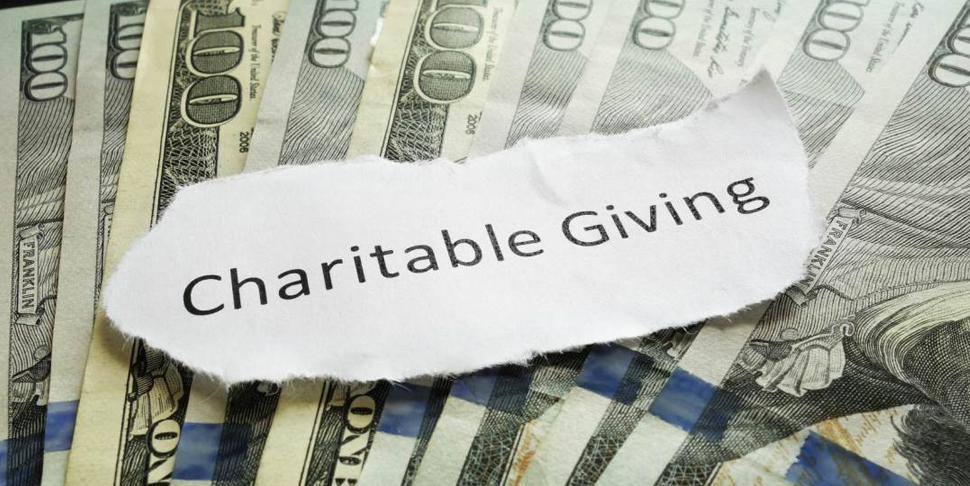by
Stacy Wise
| Apr 25, 2019

Are You Charitably Inclined?
By Rick Imhoff, CFP ®
Under the new tax laws, many taxpayers will no longer be able to itemize deductions on their federal income tax return due to the higher standard deductions. For the 2019 tax year, the standard deduction for single taxpayers is $12,200 and $24,400 for married taxpayers filing jointly. An additional standard deduction of $1,300 is available for those individuals age 65 and older, for a total of $2,600 if both spouses are age 65 or older and filing jointly. Single taxpayers can get an additional standard deduction of $1,650.
This may present an issue for charitably inclined taxpayers who in the past, fulfilled their charitable or religious financial desires and may have been able to reduce their taxable income by taking a charitable deduction. Now that may longer be the case. Of course, many individuals will continue to be charitable regardless if there is an income tax deduction or not, but it would be nice to get a deduction. In any event, there are a couple of options to consider to maximize the tax benefit of charitable donations.
With the higher standard deductions, you may want to “bunch” your charitable deductions. This means that instead of making charitable donations each year, you make two, three or even more years of charitable donations in one tax year that would exceed the standard deduction on their own or in combination with other itemized deductions. It’s like you are “charitable” in one year and not in the other years, but still making your donations and gifts. This option can be useful for those who make fairly large charitable gifts.
If you have an IRA and age 70 ½ or older, you may have recently received a Form 5498 showing the total market value of your IRA as of December 31st and the required minimum distribution you must take from your IRA prior to the end of 2019. Even if you don’t need the funds to supplement other retirement income, you must take it to avoid the 50% penalty and include it with your other taxable income. However, if you are charitably inclined and you are not able to itemize deductions, a Qualified Charitable Distribution (QCD) may be an option for you. Here is one example of how this works:
Marie Jones is 75 years old and tithes regularly to her church. Her required minimum distribution (RMD) from her IRA for 2019 is $3,600. Her social security and pension benefits more than cover her regular monthly expenses and she has other investments in addition to her IRA. She does not need the RMD from her IRA, but must take it to avoid the 50% penalty. Maria also does not have enough itemized deductions and takes the standard deduction on her individual income tax return.
Marie instructs her IRA custodian to issue a check in the amount of $3,600 payable to her church. Even though the check was payable to her church, the IRS says that she has met her 2019 RMD from her IRA. By doing this, Marie does not have to pay income taxes on the $3,600. Of course, a charitable income tax deduction is not available since the distribution is not taxable.
The benefit for Marie is the $3,600 is removed from her gross income and not included in the calculation to determine how much of her social security benefits are taxable. Depending on Marie’s tax bracket, she could save a few hundred dollars in income taxes by sending part or all of her 2019 RMD to her church (or other qualifying charitable organization) rather than issuing a personal check for the same amount. This is particularly useful for Marie since she is not able to itemize her deductions.
The benefit of making a QCD from your IRA is that you can make charitable contributions each year and not have to consider whether your charitable contributions and other itemized deductions exceed the standard deduction. However, prior to taking any distribution from your IRA, you should consult with your tax advisor so that your individual situation and other possible options are considered, as well as to fully understand the limitations imposed by the IRS on such transactions.
Rick Imhoff, CFP®, is Executive Vice President & Senior Trust Officer for MidAmerica National Bank. He can be reached at 309-647-5000, ext. 1130 or by email.
Investments are not FDIC-insured, hold no bank guarantee, may lose value, are not a deposit, and are not insured by any federal government agency.